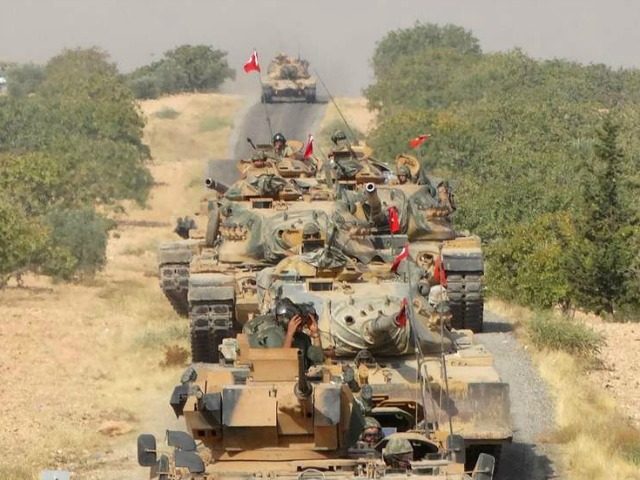The Turkish Security Council and Prime Minister Binali Yildirim announced Thursday that Turkey would officially conclude “Euphrates Shield,” a military operation begun in August to keep the Syrian Kurdish YPG militia from inching too close to the Turkish border.
Ankara left open the possibility of beginning a new military assignment in Syria, however, and does not appear to have begun to withdraw troops from the embattled regions where they are stationed.
“Operation Euphrates Shield has been successful and is finished. Any operation following this one will have a different name,” Prime Minister Yildirim said on Thursday. “After this point, if we take action in the event that our security is threatened or if action is needed against DAESH [the Arabic acronym for the Islamic State], then it will be as part of a new operation.”
“Thanks to the Euphrates Shield, we have secured an area of 2,015 square kilometers under security by capturing al-Bab. The Free Syrian Army (FSA) has been settled there. Syrians in Turkey have returned and life has returned to normal,” Yildirim claimed.
The Turkish newspaper Hurriyet also quotes a statement from the Turkish MGK (National Security Council) confirming the end of the operation. “The Euphrates Shield Operation, launched to secure our country’s border security, to prevent DEAŞ [ISIS] threats and attacks from targeting our country, to give an opportunity to our displaced Syrian brothers to return their homes and to continue their lives in peace and security, has been successfully completed,” the statement read.
Hurriyet adds that “it is not clear” whether the Turkish government has begun to withdraw troops from Syria. Syrian dictator Bashar al-Assad has called all militaries present in Syria without his express authority “invaders” – meaning the United States and Turkey but not Damascus-allied Russian and Iranian soldiers.
The Turkish government gave conflicting explanations for launching Euphrates Shield. In August, the state-run Anadolu News Agency explained the operation as “aimed at improving security, supporting coalition forces and eliminating the terror threat along Turkey’s border through Free Syrian Army (FSA) fighters backed by Turkish armor, artillery and jets.” That report claimed that the Turkish government would consider the mission accomplished when the Syrian Kurdish People’s Protection Units (YPG) – a U.S.-allied militia that has made great gains in containing the Islamic State where the Syrian army has not – were stationed east of the Euphrates River.
YPG officials insisted at the time, however, that they had already retreated east at the behest of the White House. The Turkish government conducted airstrikes against the YPG following their retreat, anyway. In October, Foreign Minister Mevlut Cavusoglu told reporters that the YPG were no longer the intended target of the operation, but the Islamic State. “The aim of Turkey’s Syria military operation is to clear Daesh [ISIS] from the southern border,” he told Anadolu.
Turkish President Recep Tayyip Erdogan later obfuscated the goal of the mission further by declaring in November, “We entered there [Turkey] to end the rule of the tyrant al-Assad who terrorizes with state terror,” and not “any other reason.”
Asked about Erdogan’s comments in an interview with Breitbart News last week, Cavusoglu insisted that Turkish officials had been “very clear” about the objective of their presence in Syria: to eradicate ISIS.
The end of Euphrates Shield arrives as American Secretary of State Rex Tillerson lands in Ankara, where he met with Erdogan and Cavusoglu, among other officials. Anadolu reports that Erdogan and Tillerson “addressed ongoing efforts to clear Daesh from Syria and Iraq as well as the extradition of Fetullah Gulen,” an Islamic cleric based in Pennsylvania who Erdogan blames for a failed coup against him in July 2016. Anadolu adds that American support for the YPG also came up, though there is no indication of what the two officials concluded in that conversation.
Cavusoglu also stressed the Turkish opposition to the YPG, according to the Erdogan-friendly newspaper Sabah.
“They are difficult options, let me be very frank. These are not easy decisions,” Tillerson told reporters regarding support for the YPG at a joint press conference with his counterpart Cavusoglu, according to NPR. Tillerson has yet to conclude his visit to Turkey at press time.

COMMENTS
Please let us know if you're having issues with commenting.